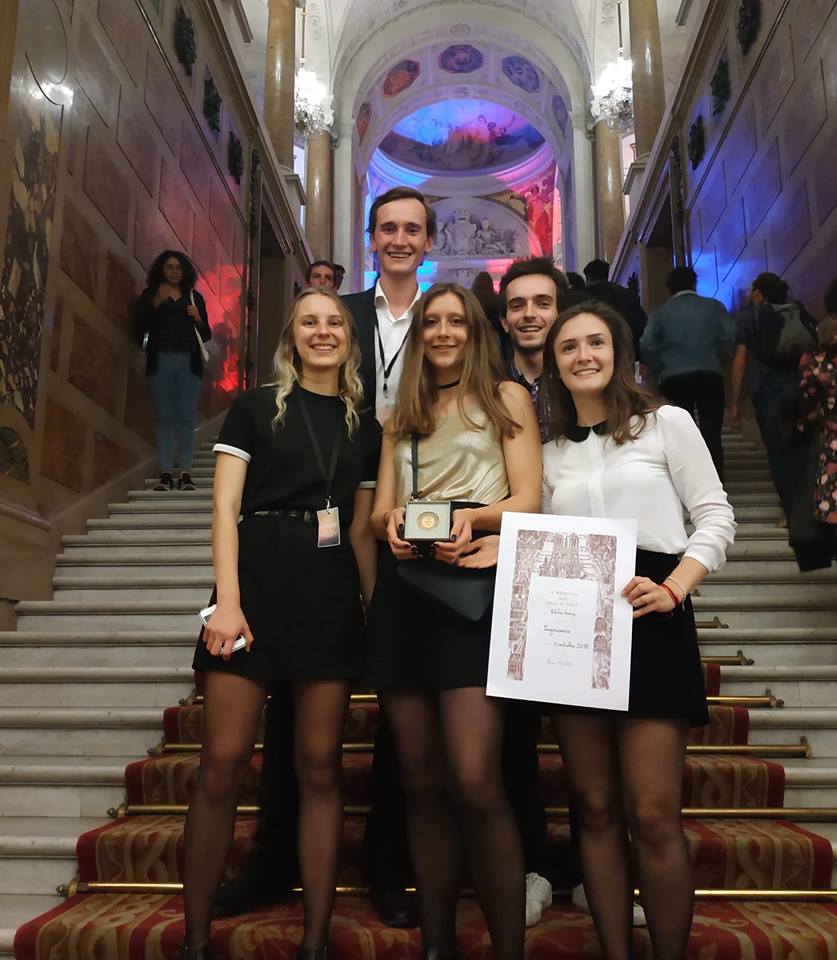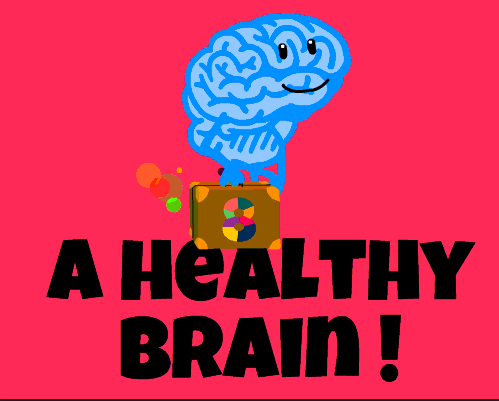FOCUS
Special event - Steven Pinker's "Enlightenment now" at ENS

Steven Pinker will be in Paris for the promotion of the French translation of his new book "Enlightenment now.
The Case for Reason, Science, Humanism, and Progress" (Les Arénes ed.). He will give a talk at ENS on Wednesday November 7th.
The talk will be followed by an authograph session.
Steven Pinker is an experimental psychologist who conducts research in visual cognition, psycholinguistics, and social relations.
He grew up in Montreal and earned his PhD from Harvard. Currently Johnstone Professor of Psychology at Harvard, he has also taught at
Stanford and MIT.
He has won numerous prizes for his research, his teaching, and his nine books, including "The Language Instinct", "How the Mind Works", "The Blank Slate", "The Better Angels of Our Nature", and "The Sense of Style".
 He is an elected member of the National Academy of Sciences, a two-time Pulitzer Prize finalist, a Humanist of the Year, a recipient of nine honorary doctorates, and one of Foreign Policy’s "World’s Top 100 Public Intellectuals" and Time’s "100 Most Influential People in the World Today."
He is an elected member of the National Academy of Sciences, a two-time Pulitzer Prize finalist, a Humanist of the Year, a recipient of nine honorary doctorates, and one of Foreign Policy’s "World’s Top 100 Public Intellectuals" and Time’s "100 Most Influential People in the World Today."
Steven Pinker's website
November 7 at 17h, at ENS, amphitheater Jaurès, 29 rue d'Ulm, 75005
Registration on eventbrite
AWARDS
Pascal Mamassian received the Anneliese Maier Award
 Pascal Mamassian is a CNRS researcher and the head of the Laboratoire des Systèmes Perceptifs (LSP).
Pascal Mamassian is a CNRS researcher and the head of the Laboratoire des Systèmes Perceptifs (LSP).
Eight top international humanities scholars and social scientists received the Anneliese Maier Award to collaborate with researchers in Germany. The eight award winners were selected from a total of 111 nominees from 30 countries. The ceremony took place in Berlin on September 12.
The award is designed to finance research collaborations over a period of up to five years with specialist colleagues in Germany. Funded by the Federal Ministry of Education and Research, it seeks to help promote the internationalisation of the humanities and social sciences in Germany.
Photo: "Humboldt Foundation/Jens Jeske"
Read more about the Humboldt Foundation.
Lou Safra, winner of the Sauberan Award
Lou Safra, who defended her thesis at the DEC in September 2017, is the winner of an award from the Chancellery of the Universities of Paris, the Sauberan Prize, specializing in Science. The award ceremony will take place on December 4.
The Chancellery awards 50 prizes each year, in all disciplines. These awards recognize the excellence of the academic and scientific value of a doctoral thesis.
Cognivence - Medal of Honor from the city of Paris
 The Cognivence association received the Medal of Honor from the city of Paris on October 11 for the organization of the 17th Forum of Cognitive Science "Exploring the brain with eyes closed: sleep, dream, meditation", which took place at the Cité des Sciences et de l’Industrie on April 8th.
The Cognivence association received the Medal of Honor from the city of Paris on October 11 for the organization of the 17th Forum of Cognitive Science "Exploring the brain with eyes closed: sleep, dream, meditation", which took place at the Cité des Sciences et de l’Industrie on April 8th.
EDUCATIONAL PROJECT
My Brain Robbie – A Healthy Brain!
The project "A Healthy Brain!" is a creative effort to raise awareness and promote better understanding of
brain health in children aged 6 to 12 years old and, more broadly, to increase global public awareness of
the importance of brain health at all ages.
Eléonore Bayen, assistant professor in neuro-rehabilitation in Paris at Sorbonne University – La Pitié-Salpêtrière Hospital, with the help of Laurent Cleret De Langavant,
researcher in the NeuroPsychologie Interventionnelle team, created a character named Robbie and a video that presents
scientific knowledge about brain health prevention as a fun and engaging narrative. Robbie the brain explains to us
the things we can do every day to keep our brain healthy.
 The video is available on the website https://mybrainrobbie.org where more information, a bibliography and an educational tool can be found as well.
The video is available on the website https://mybrainrobbie.org where more information, a bibliography and an educational tool can be found as well.
IN THE MEDIAS
Education and digital technology
Elena Pasquinelli,
associate member of the Institut Jean Nicod and specialist in education and digital technology,
has published "Comment utiliser les écrans en famille" (Odile Jacob), a guide for parents, often also addicted to screens as their children.
-
Interview in Le Nouvel Obs - October 2, 2018
- "Comment mieux gérer les écrans avec les enfants et les adolescents ?" France Inter "Grand bien vous fasse !" - September 26, 2018
- "Quel est l’impact du numérique sur le cerveau de nos enfants ?" France Inter "Les Savanturiers" - September 29, 2018
- "Les écrans" TSC.ch - October 6, 2018
- "Apprendre au XXIème siècle - avec et par la science" France Culture "Etre et savoir" - September 16, 2018
- "Quand la science du cerveau révolutionne l’école" La Tribune - October 20, 2018
SOME RECENT PUBLICATIONS
Sophie Bavard, Maël Lebreton, Mehdi Khamassi, Giorgio Coricelli & Stefano Palminteri (2018). Reference-point centering and range-adaptation enhance human reinforcement learning at the cost of irrational preferences. Nature Communications 9, 4503
Abstract:
In economics and perceptual decision-making contextual effects are well documented, where decision weights are adjusted as a
function of the distribution of stimuli. Yet, in reinforcement learning literature whether and how contextual information
pertaining to decision states is integrated in learning algorithms has received comparably little attention.
Here, we investigate reinforcement learning behavior and its computational substrates in a task where we orthogonally
manipulate outcome valence and magnitude, resulting in systematic variations in state-values. Model comparison indicates
that subjects’ behavior is best accounted for by an algorithm which includes both reference point-dependence and range-adaptation—
two crucial features of state-dependent valuation. In addition, we find that state-dependent outcome valuation progressively
emerges, is favored by increasing outcome information and correlated with explicit understanding of the task structure.
Finally, our data clearly show that, while being locally adaptive (for instance in negative valence and small magnitude contexts),
state-dependent valuation comes at the cost of seemingly irrational choices, when options are extrapolated out from their original
contexts.
Cavanagh, P., Casati, R., Elder, J., Tight shadows shrink depth. Journal of Vision September 2018, Vol.18, 493. doi:10.1167/18.10.493.
Abstract:
When an object casts a shadow on the surface behind it, we get a strong impression of depth separating the object and the rear surface.
Kersten and Mamassian (1996) demonstrated this with a cast shadow that moved in and out below a static square,
making the square appear to approach and recede in depth. There was no visible light source and the shadow motion
could have been caused by a moving light source. Instead, viewers assumed a fixed light and a moving object where
the depth of the object scaled with the offset of its shadow. Here we report a particularly strong light source
bias in the case of "tight shadows", shadows that have very small offsets from the object casting them, as is
often seen with flash photography. The small offset between object and shadow is due to the light source being
near the point of view of the observer or camera. However, rather than attributing the tight shadow to the light
source location, observers instead attribute it to a very small separation between the object and the rear surface.
This bias – "tight shadow equals small separation" – leads to paradoxical impressions of objects impossibly close to
their backgrounds. However, it is consistent with the expected object to background separation averaged over all
possible light source directions, e.g., lights to the left for right shadows. In this framework, tight shadows are
most likely to be caused by shallow relief.
Guez, A., Peyre, H., Le Cam, M., Gauvrit, N., & Ramus, F. (2018). Are high-IQ students more at risk of school failure?. Intelligence, 71, 32-40
Abstract:
While it is well-established that intelligence tests positively predict academic achievement, there remain widespread beliefs
that gifted students experience difficulties at school and are particularly at risk of school failure.
Many studies have provided evidence to the contrary, however few were based on representative population samples.
This paper intended to assess whether prior results on the academic success of gifted children could be generalized
to a large sample from the general French population. We analyzed a database of French middle school students (N = 30,489),
including scores in a fluid intelligence test in grade 6 and a variety of school performance measures in grade 9
(results at a national exam, teachers' grades, academic orientation in high school). In addition, self-efficacy and
motivation were assessed. Our results replicate and extend previous findings: high-IQ students scored much better on
all academic performance measures, which was corroborated by higher levels of motivation and self-efficacy. Consistently
with the previous literature, there was a robust positive relationship between fluid intelligence in grade 6 and academic
performance in grade 9 in the whole sample, which was also observed within high-IQ students. Exploratory analyses revealed
that IQ moderated the association between social background and children's achievement, such that the positive link between
parental education and achievement levelled off for high-IQ children. The positive association between high-IQ and achievement
was similar for boys and girls.
Recanati F. (2018). "From Meaning to Content : Issues in Meta-Semantics". In D. Ball et B. Rabern (dir.)
The Science of Meaning : Essays on the Metatheory of Natural Language Semantics. Oxford : Oxford University Press, pp. 113-137.
Abstract:
According to a widespread picture due to Kaplan, there are two levels of semantic value: character and content.
Character is determined by the grammar, and it determines content with respect to context. In this chapter Recanati
criticizes that picture on several grounds. He shows that we need more than two levels, and rejects the determination
thesis: that linguistic meaning as determined by grammar determines content. Grammatical meaning does not determine
assertoric content, he argues, but merely constrains it—speaker’s meaning necessarily comes into play.
On the alternative picture he offers, there are four basic levels, only one of which is determined by the grammar.
Pragmatics is what enables the transition from each level to the next.
Recanati F. (2018). "Contextualism and Singular Reference". In J. Collins et T. Dobler (dir.) The Philosophy of Charles Travis: Language, Thought, and Perception. Oxford: Oxford University Press, pp. 181-196.
Abstract:
This chapter discusses the relations between three approaches to the referential/attributive distinction:
the Gricean approach advocated by Kripke and others, the two-dimensional approach pioneered by Kaplan and
Stalnaker, and the Millian approach favoured by Donnellan. In contrast to the two-dimensional approach,
the Millian approach honours the intuitions which led to the rejection of descriptivism, but it is subject
to Gricean criticism based on the speaker’s reference/semantic reference distinction. The chapter shows that,
suitably elaborated and revised, the Millian approach can be made immune to that criticism. The resulting view,
it is argued, applies beyond the case of definite descriptions. It also supports Austin’s and Strawson’s speech
act theoretic approach to reference and truth—an approach which Grice initially dismissed and which Travis
insightfully attempted to defend and resurrect.
CALENDAR
DEC calendar available on: cognition.ens.fr
Susbcribe to the newsletter
Unsubscribe from the newsletter
